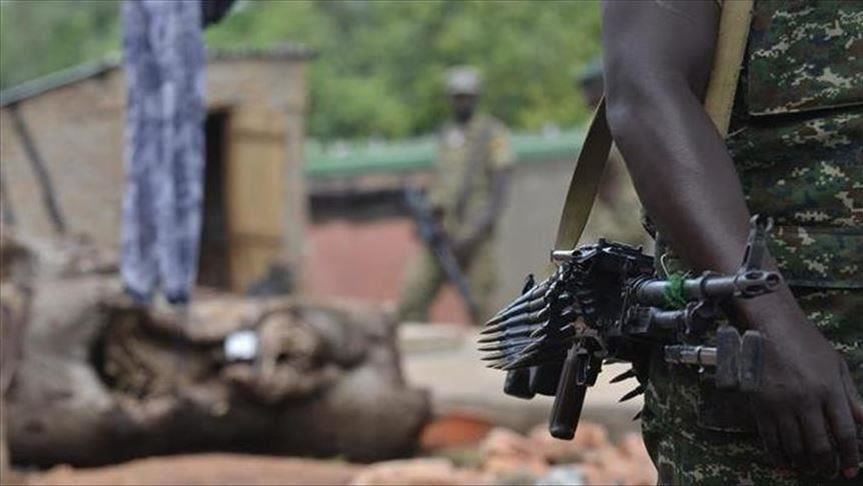 file photo
file photo
KIGALI, Rwanda
An armed insurgency with its origins in the wider socio-economic and political disparity has kept the southern African nation of Mozambique smoldering since 2017.
The peace had remained elusive in the country with vast natural resources even after the end of the 15-year long civil war in 1992.
In the latest bout of insurgency that started in 2017, the insurgency has left 2,000 dead and 310,000 displaced in the country whose long Indian Ocean coastline is dotted with popular beaches, as well as offshore marine parks and reefs.
Last Sunday, Mozambican President Filipe Nyusi lamented that outside forces were targeting the defenseless public and social institutions in his country. He said terrorists linked to Daesh/ISIS have caused havoc in the northern province of Cabo Delgado.
According to a US-based NGO, the Armed Conflict Location & Event Data (ACLED) group, the armed conflict has hit 10 out of the 17 districts in the province.
Of late, the central provinces of Manica and Sofala have also witnessed the second wave of violence, where a breakaway from Renamo (National Resistance of Mozambique), calling itself the Renamo Military Junta has been staging ambushes on the main roads.
The group denounced Renamo leader Ossufo Momade as a “traitor” and rejected the peace agreement he signed with Nyusi in August 2019.
Freddie David Egesa, a Uganda-based security analyst said since the entire generation in Mozambique has grown up with conflicts, it is taking a long time to find solutions.
“For even settling the smallest issues, they [Mozambique people] see war as the only instrument. They have been indoctrinated. Even the Mozambique national flag depicts an AK-47 image among other symbols,” Egesa told Anadolu Agency.
Mozambique flag bears AK-47
Adopted in 1983 during the civil war, Mozambique’s tricolor flag has green, white-edged black and yellow bearing an AK-47 assault rifle with the bayonet attached to the barrel crossed by a farming mattock superimposed on an open book.
In March, the insurgents raided an army barracks in Mocimboa da Praia, a port town in northern Mozambique, and looted its armory.
In August they captured the entire town, including its port which reportedly continues to remains under their control.
Speaking to Anadolu Agency, Oscar Kimanuka, a Kigali-based political analyst said that unemployment in Mozambique like in many countries is a key driver, forcing youth to take up guns.
“In most of sub-Saharan Africa, the youth constitute more than 50% of the population. For instance, in Uganda, the youth constitute 70% of the population. Youth redundancy and unemployment are major factors motivating them to join the rebels,” he said.
According to Kimanuka, while religion plays a part to some extent, but largely the current escalation of violence owes origins to widespread socio-economic and political issues.
Egesa said the war is embedded in the minds of the people of Mozambique, who has seen it as an only instrument so far to settle scores.
“With this psyche, a country that has minerals such as coal, gold may continue to produce rebel groups and get exploited by warlords, who have tendencies of creating militias to manipulate the economy and own mineral deposits,” he said.
South Africa shows concern
In June, South Africa’s Defense Minister Nosiviwe Mapisa-Nqakula had warned that insurgency in the northern province of Mozambique has the potential to spread to other provinces and neighboring countries.
Without giving details, Mapisa-Nqakula said South Africa had plans to counter the growing insurgency in Cabo Delgado.
Last week, Patrick Pouyanne, the chief executive of French energy giant Total, appealed to Western countries to render help to stabilize northern Mozambique. He said the situation is serious, adding that the terror groups affiliated to Daesh/ISIS have established a base there.
Speaking in Maputo, after laying a wreath at the Monument of the Mozambican Heroes—to commemorate the 28th anniversary of the signing of the General Peace Agreement between the government and the rebel movement Renamo, on Oct. 4, 1992, Nyusi talked of launching a military offensive.
But, Egesa cautions that there were no guarantees that a military solution can stop the insurgency. He said the forces unleash counter-terror making people suffer and join rebel forces.
“The state feels it can crush the rebels. The rebels have also frightened the population and force them to recruit in their ranks. In the end, people find it safe to keep to guns and hold territory. So, unless the government wakes up and demonstrates maturity and trust, Mozambique is far from peace,” he said.
Nyusi appealed to rebels to lay down arms and reintegrate into the society.
But analysts said that President Nyusi needs to demonstrate his commitment to negotiations.
“The solution could be to pull all warring factions on the country's management table then try to dissolve all the militias into a unitary government force. The government also needs to work truthfully to win the trust of the sprinter rebel groups,” said Egesa.
Anadolu Agency website contains only a portion of the news stories offered to subscribers in the AA News Broadcasting System (HAS), and in summarized form. Please contact us for subscription options.



